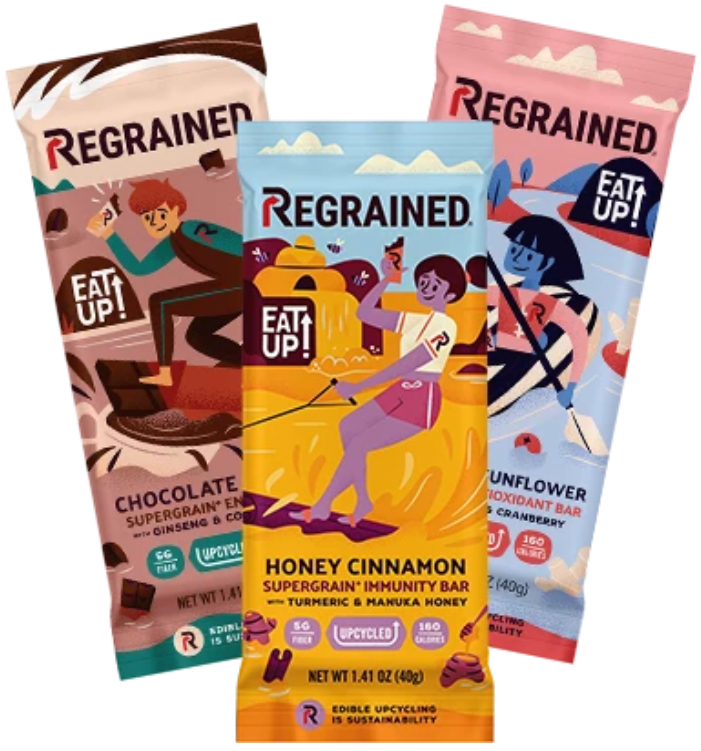KANSAS CITY — Mainstream brands are catering to consumer desire for functional benefits in food and beverages. Shoppers are seeking snacks or drinks that promote digestion, heart health, brain benefits and more.
A recent example comes from Tyson Foods, Inc., Springdale, Ark., which launched a line of refrigerated snack bites formulated with ingredients such as turmeric, probiotic cultures, prebiotic fiber and collagen protein.
“Consumers are looking for delicious, convenient foods to deliver essential protein and other functional benefits,” said Noelle O’Mara, group president of Prepared Foods for Tyson Foods. “Sixty-five per cent of people are seeking foods with functional benefits while the number of snacking occasions continues to increase as the lines between breakfast, lunch and dinner blur. We are innovating at the intersection of these trends, giving consumers more convenient, nutritious snack options.”
Beneficial beverages
The Coca-Cola Co., Atlanta, is capitalizing on demand for beverages with functional benefits. Launching nationwide next year, Coca-Cola Energy features a “cola-forward taste” with 114 mg of caffeine per 12-oz serving, which compares to 34 mg in a 12-oz can of original Coca-Cola, plus B vitamins and guarana extracts. Varieties include original, cherry, zero-sugar original and zero-sugar cherry.
“As part of our overall vision to be a total beverage company, we are meeting the consumer where they are today and anticipating where they are going to be tomorrow,” said Susan Zaripheh, group director of transformational innovation at Coca-Cola. “An important part of this is developing new beverages with functional benefits that meet the clear demand we are seeing from consumers in the marketplace.”
 Also debuting from the Coca-Cola Co. is Gomega, a brand of “superfusion” beverages with omega-3 fatty acids and antioxidants. Flavors include berry acai, strawberry guava and mango passionfruit.
Also debuting from the Coca-Cola Co. is Gomega, a brand of “superfusion” beverages with omega-3 fatty acids and antioxidants. Flavors include berry acai, strawberry guava and mango passionfruit.
The product was developed by a team at the Coca-Cola Co. dedicated to transformational innovation with the goal to ideate and commercialize products quickly.
“Historically, it has been very challenging to incorporate omega-3 fatty acids into ambient beverages,” Ms. Zaripheh said. “Our team evaluated the latest ingredient technology, collaborated with industry experts to maintain ingredient stability over the shelf life and quickly trialed numerous recipes in an iterative process to create a great tasting and stable solution. We learned a lot in product development, and incorporating a blend of plant-based sweeteners helped us to deliver on great taste without an aftertaste.”
Functional foods
Recent investments by Griffith Foods, Alsip, Ill., highlight two emerging functional ingredients. A developer and manufacturer of customized food ingredients, Griffith Foods has partnered with Kuli Kuli, Oakland, Calif., and ReGrained, San Francisco, to scale production of moringa and spent brewers’ grain.
Rich in protein, potassium, calcium and vitamin A, moringa is a complete plant protein with nine essential amino acids. Kuli Kuli offers a portfolio of products featuring moringa in green powder, smoothie mixes, nutrition bars and wellness shots. The brand recently launched into 2,500 Walmart stores nationwide.
“I think we’re getting a much better understanding of food as medicine and the impacts dark leafy greens in particular can have on our health,” said Lisa Curtis, founder and chief executive officer of Kuli Kuli.
With an earthy green flavor, similar to that of matcha, moringa may be used in seasonings, bakery items, vegetable chips or crisps, dressings and beverages, said Dave Bender, global vice-president of research and development for Griffith Foods.
 “Moringa has an inherent green color, which can be very much a positive and a slight challenge depending on the application and the visual appearance that is desired,” Mr. Bender said. “Moringa also has a distinct flavor, which needs to be paired well and designed appropriately depending on the finished application.”
“Moringa has an inherent green color, which can be very much a positive and a slight challenge depending on the application and the visual appearance that is desired,” Mr. Bender said. “Moringa also has a distinct flavor, which needs to be paired well and designed appropriately depending on the finished application.”
ReGrained processes leftover barley from beermaking into a nutritious flour that may be used in snacks, baked foods and condiments. San Francisco-area pasta and pizza companies already source ReGrained Supergrain+ flour, which is high in protein and prebiotic fiber and low in sugar. The company also offers a line of snack bars made with the flour plus other functional ingredients, such as ginseng, turmeric, ginger and manuka honey.
“ReGrained SuperGrain+ has a neutral nutty flavor but slightly darker color than certain flours, and temperature and time control are important considerations to prevent it from getting too dark,” Mr. Bender said. “It is also high in fiber and can absorb significant amounts of water. This is not necessarily a challenge — in fact, it can be a great benefit — but it is something to account for in the development of products.”
Botanical ingredients represent another area of opportunity in functional food and beverage innovation, Mr. Bender said.
“With food science, culinary, sensory and consumer insights as our core capabilities, and in conjunction with our growing health and nutrition platform, we continue to seek materials with nutrient-dense profiles, cleaner labels and those that enable the development of ‘better-for-you’ products,” Mr. Bender said. “The botanical category is particularly interesting with its long history of providing perceived health benefits, and now more recently with science beginning to back these claims.”




